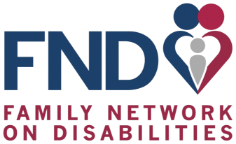INformation Hub
Others with Knowledge or Special Expertise About the Child
Others with Knowledge or Special Expertise About the Child
Most recently reviewed, August 2017
Table of Contents
- IDEA’s requirements, summarized
- Who decides if the individual has the necessary expertise?
- About related services
IDEA’s requirements, summarized
According to IDEA, the IEP Team may also include additional individuals with knowledge or special expertise about the child. These individuals participate as members of the team at the discretion of the parents or the school system, meaning that either the parent or the school system invites their participation. IDEA specifically mentions that such individuals may includerelated services personnel, as appropriate.
Examples of such individuals:
Parents may invite a friend or relative who knows the child, a professional with special expertise about the child and his or her disability, or others (such as a vocational educator who has been working with the child) who can talk about the child’s strengths and/or needs.
The school system may invite one or more individuals who can offer special expertise or knowledge about the child, such as a paraprofessional or related services professional.
Who decides if the individual has the necessary knowledge or expertise?
What type of knowledge or special expertise does this person have to have about the child, or how much knowledge or expertise, in order to be “a person with knowledge or special expertise?” And who decides whether or not that person actually does have that knowledge or special expertise?
IDEA does not answer these questions. However, it does say that it is “the party (parents or public agency) who invited the individual to be a member of the IEP Team” who makes the determination of whether or not the person invited has the knowledge or special expertise about the child [§300.321(d)].
About Related Services
An important part of developing an IEP is considering a child’s need for related services (see the list of related services below). That’s why related service professionals are often involved as IEP team members or participants. They share their special expertise about the child’s needs and how their own professional services can address those needs.
Depending on the child’s individual needs, some related service professionals attending the IEP meeting or otherwise helping to develop the IEP might include:
- occupational or physical therapists,
- adaptive physical education providers,
- psychologists, or
- speech-language pathologists.
The key here is that the person must know the child and have special expertise about his or her needs or strengths.
What are related services?
Related services help children with disabilities benefit from their special education by providing extra help and support in needed areas, such as speaking or moving. Related services can include, but are not limited to, any of the following:
* speech-language pathology and audiology services
* interpreting services
* psychological services
* physical and occupational therapy
* recreation, including therapeutic recreation
* early identification and assessment of disabilities in children
* counseling services, including rehabilitation counseling
* orientation and mobility services
* medical services for diagnostic or evaluation purposes
* school health services and school nurse services
* social work services in schools
* parent counseling and training
Back to top
________________________________________________________
**Highly Rated Resource! This resource was reviewed by 3-member panels of Parent Center staff working independently from one another to rate the quality, relevance, and usefulness of CPIR resources. This resource was found to be of “High Quality, High Relevance, High Usefulness” to Parent Centers.
________________________________________
Would you like to read about another member of the IEP team?
If so, use the links below.
- Parents on the IEP Team
- Special Educators on the IEP Team
- Regular Educators on the IEP Team
- A Representative of the School System
- Someone to Interpret Evaluation Results
- Others with Knowledge or Special Expertise About the Child (you’re already here)
- Student with a Disability on the IEP Team
SOURCE ARTICLE: Center for Parent Information and Resources
Give us a call at (727) 523-1130 or (800) 825-5736 or request a callback by clicking below.
311 South Missouri Ave, Clearwater, FL 33756
(727) 523-1130
(800) 825-5736

